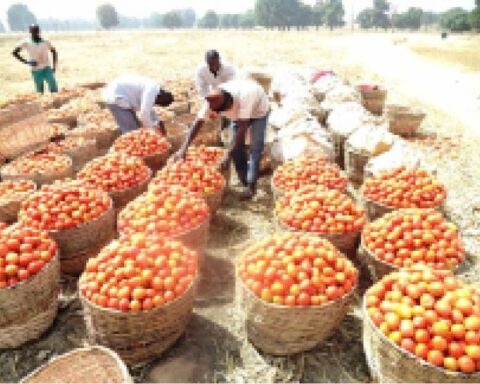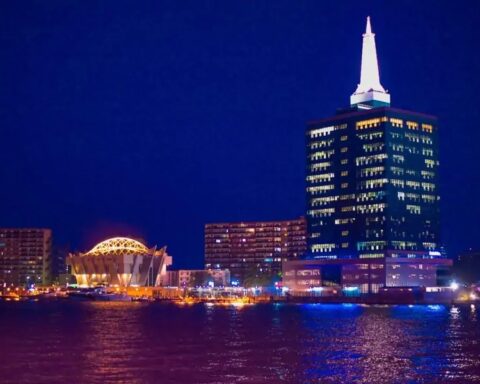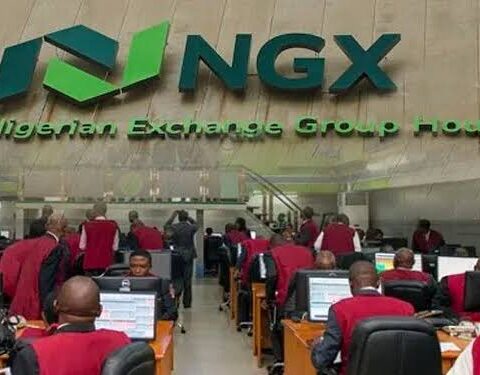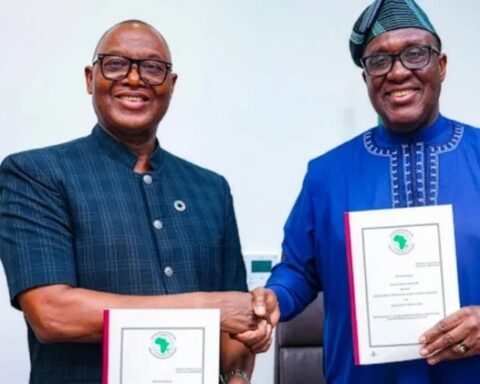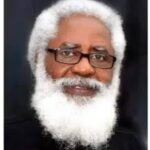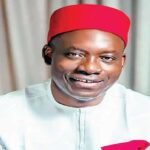“I am beginning to wonder how many fools it takes to make the term ‘My Fellow Citizens’” -Honore de Balzac, 1799-1850, in LOST ILLUSIONS
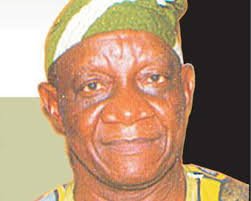
You were probably one of those who eagerly awaited the completion of the Dangote Refinery while labouring under the illusion that it will crash the price of fuel nationwide. Welcome to the unpleasant reality. Underlying that self-deception was the unstated but implied assumption that Alhaji Dangote was embarking on a venture designed to free Nigeria from fuel importation. Well, “when you assume, you make an ass of you and me.”
Gullible Nigerians, especially many media commentators, had committed the blunder of forgetting that Dangote is a businessman caught in a global race for position among the world’s richest people. He went into the refinery primarily to make as much money as he can; and stopping fuel importation is a distant second objective – except that securing a monopoly of the domestic fuel supply would help achieve the ambition.
When the first batch of Dangote petrol hits the filling stations, it will carry an official price tag of N890+/litre – the highest in history and the end is not in sight for pricing. Additionally, the fuel will arrive with another quality controversy in tow. Never in the history of Nigeria has colourless petrol been offered for sale – until now. The same thing happened with the diesel on offer from the refinery. Dangote and some of his admirers argue that the colourless product is better than anything else. I beg to disagree.
A COUP AGAINST THE PEOPLE – COLA CATASTROPHE INEVITABLE
“How can we rationalise a situation where doctors who earn an average of $300 per month, are expected to cope with such astronomical increases in the cost of living? The recent hike in PMS prices has worsened an already unsustainable economic reality for healthcare professionals and all Nigerians, making it nearly impossible for them to manage” – Saheed Kehinde, Chairman, Nigerian Medical Association, Lagos Branch.
If doctors cry out, what would drivers do? The worst part of the entire calamity is still to come for several reasons. But, some issues will serve to illustrate our national predicament. It is simply terrifying. Our lives have been changed forever; unfortunately not for the better for most Nigerians.
First, Mr Adedapo Segun, the Executive Vice President of Downstream NNPCL, told Nigerians, on television, on September 5, 2024: “The market has been deregulated, meaning that petrol prices are now determined by market forces rather than by the government or NNPC Ltd. Additionally, the exchange rate plays a significant role in influencing those prices.” If that does not open the eyes of those who had been touting the Dangote Refinery as our saviour from high fuel prices, nothing will. However, just in case more is needed to open the eyes of those self-blinded, there is more bad news.
For those individuals and groups –NBA, PDP, CNG, Reps Minority caucus and YCE – shedding tears and requesting for price roll back, there is only one advice: Stop shedding tears now; you might need to shed blood later. The Yoruba Council of Elders, YCE, in particular, sounded hypocritical. Tinubu is their President; they voted massively for him. They have a right to talk; but, nobody can take them seriously. This is the direct consequence of their votes!!! From my own projections, market-determined prices will end up ranging from N1, 100-1, 230/litre ultimately. The consequences of that eventuality will be explained later in another article.
Dangote versus NNPCL refineries
“Against [official] stupidity, the gods themselves labour in vain” – Frederick von Schiller, 1759-1805, VBQ p 235, available online.
The approval of Dangote’s brand of petrol, when combined with NNPCL’s role as the initial sole distributor of the first colourless petrol offered for sale in Nigeria, has opened several issues for public debate. To begin with, NNPCL’s four refineries, if ever they produce petrol, will distribute conventional yellow coloured fuel. The two types of petrol conform to standards approved in different parts of the world. The claim that Dangote’s fuel meets American specifications constitutes partial information and defence of the brand.
Every car manufacturer selling cars in the US builds engines that meet American specifications – V6, V8 and even V12. Americans generally love big cars. Europeans and Asian manufacturers favour smaller cars – V4 and V6 – but seldom anything bigger. The fuel specifications are consequently different. Because almost all the cars on Nigerian roads are made in Japan, South Korea, and increasingly now China, the fuel specification has not changed for decades. The attempt to bring ‘super petrol’ to Nigeria in the 1970s resulted in massive failure; and it was eventually abandoned.
Nigeria’s refineries will produce conventional petrol; not white petrol. Nigeria will then become the first country on the globe offering two different types of petrol for consumption. That raises a fundamental technical question; which neither Dangote nor NNPCL has bothered to address. Can the two types of petrol be mixed in the same tanks – cars, generators etc — without problems for users? Even the villager can understand the implications of that question.
Obviously, if for some technical reasons, the two brands of petrol are not safely mixable, Nigerian consumers are being exposed to great risks with regard to their investments in generators and cars. The risks are considerable; given the fact that for most low income people, a generator is probably their biggest investment; while for the Middle Class, the family car is the largest investment. Damage those two items and the economic calamity would be incalculable.
In a better governed society, the NNPCL and the Ministry of Petroleum Resources should have answered that question before Dangote’s fuel was released. They should have mixed the two to determine if they are safely mixable and then run the mixture in several cars to test the performance of the mixture in cars and generators.
It is only because we are Nigerians, who frequently refuse to learn from history, that most people in my generation have forgotten the damages super octane petrol did to the small engines of Volkswagen Beetles and other mini cars. What sort of people are we; that we accept fundamental and risky shifts in our lives without finding out if the change would be beneficial? Was it not a mere ten years ago, when we succumbed to the fraudulent noise of CHANGE? How many of us would not be too happy to return to the way we were then?
Colourless petrol
“Not all changes are for the better.” That was the verdict of a sage who lived about three hundred years ago. Buhari’s and APC’s eight years in government have proved that to us. Colourless petrol might turn out to be indeed better than conventional fuel; but, mixing it with other types of petrol might turn out to be problematic. Colour-coding products that are similar, but different, have been an age-long method in industries for avoiding horrible mistakes. Hydrochloric and sulphuric acids are almost colourless, but they produce different results. We learnt that from the tragedy of cough syrup killing kids. Colourless petrol might be susceptible to mixture with water or any other colourless chemical. The results could be fatal.
Are we not overrating education?
“However, in Nigeria, high illiteracy levels have created a populace that cannot effectively participate in the process leading to good governance” – Dakuku Peterside, VANGUARD, September 3, 2024.
VANGUARD is read more thoroughly than any of the five other papers to which I subscribe everyday – irrespective of whether I agree with the writers or not. Dakuku Peterside is one of my favourites. I was reading his article of September 3, 2024 and this assertion hit me like a sudden slap in the face. Dakuku made a statement which most of us had taken as self-evident. Suddenly, it occurred to me that we might all be wrong; or at least partly wrong.
Education without character or moral courage produces a lot of monstrous situations globally. China, Russia, Cuba, and North Korea have some of the highest literacy rates in the world. But, to me, they are nations of well-educated cattle being driven by sole dictators. Three have the resources to create great economies; but, Cuba is a sad place. It is a poor nation perpetually enslaved.
Back home, Nigeria is more badly governed today with millions of graduates than in 1959 when the number of university graduates could not be up to 1, 000.
Today’s leaders – Presidents and Governors – as well as their appointees are uniformly better educated than those who served with Ahmadu Bello, Awolowo and Azikiwe. Nigeria was growing steadily under the three Premiers and the Prime Minister. Nigeria, since 2014, has experienced negative growth; and we are worse governed than in 1959. Of what use is education without character? That is a missing ingredient inhibiting our efforts at nation-building.
DELE SOBOWALE, a celebrated Nigerian columnist, writes from Lagos.

